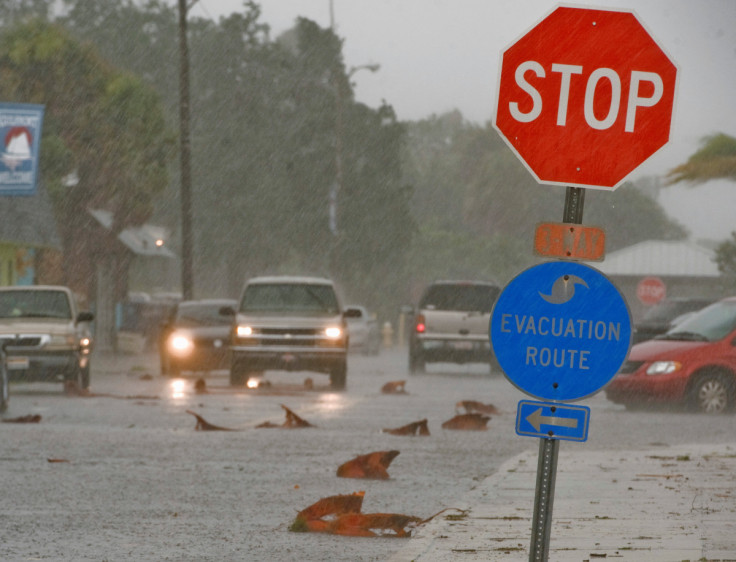Storm Gerrit's Fury Escalates: Urgent Calls for Action as Communities Grapple with Destruction
The storm, named by the Met Office on Tuesday, left a trail of destruction, with severe weather alerts in effect on Wednesday.

Storm Gerrit unleashed chaos across the United Kingdom, leaving a trail of severe damage in its wake. The storm, characterised by high winds, heavy snow, and relentless rain, struck with unparalleled force, resulting in damaged homes, cancelled transportation services and widespread power outages.
The Liberal Democrats, in the wake of the devastation caused by a "localised tornado" in Greater Manchester, have called on Prime Minister Rishi Sunak to convene a Cobra meeting. The tornado, which damaged approximately 100 properties, has thrown hundreds of lives into chaos, particularly affecting those whose homes were destroyed just after Christmas.
Wera Hobhouse, the Liberal Democrat transport spokesperson, highlighted the urgency of the situation, stating: "Rishi Sunak needs to call an urgent Cobra meeting to ensure a swift, robust recovery plan so those affected can begin rebuilding their lives."
Hobhouse pointed out that any delay in action could have a devastating impact on families already displaced, whose lives have been turned upside down by this unexpected disaster.
Storm Gerrit's impact on transportation has been profound, with British Airways cancelling more than 20 flights to and from Heathrow on Thursday. The storm's disruptive force has not spared ferry services either, with warnings of delays and cancellations affecting routes to the Hebrides, France and the Isle of Wight. This further compounds the challenges faced by individuals trying to navigate their way through the aftermath of the storm.
An inspection of the damage revealed that major rail lines remained closed across the country. Scotrail, in an announcement on Thursday, confirmed the continued closure of significant routes, including those between Aberdeen and Edinburgh, Glasgow to Oban and Edinburgh to Dundee.
The persistence of these disruptions underscores the extensive challenges faced by the transportation sector in the wake of Storm Gerrit, hindering the restoration of normalcy for those who rely on these vital services.

The coastal areas of Scotland bore the brunt of Storm Gerrit, with wind speeds reaching a staggering 80 miles (128 kilometres) per hour.
Falling branches and debris severed utility lines, plunging thousands of households into darkness. The severity of the storm was exemplified in Tameside, where a tornado tore roofs off houses and demolished walls. Residents described the scene as a "whirlwind of madness", with trees falling like dominoes, leaving chaos and destruction in their wake.
Greater Manchester Police declared a major incident as approximately 100 homes in Tameside faced significant damage. Local resident Kerry Hogan vividly described the pandemonium, stressing the sheer bedlam that unfolded.
Reports emerged of trees crashing into homes, with one woman recounting a terrifying incident where a tree fell into her bathroom. Miraculously, there were no reported injuries caused by the tornado, a testament to the resilience and preparedness of the affected communities.
As Storm Gerrit swept through Wales and Scotland, leaving destruction in its path, the National Grid reported a staggering 36,000 properties without electricity in Ceredigion. A lightning strike had compromised part of the network, exacerbating the challenges faced by utility workers. In Scotland, nearly 14,000 homes were left without power overnight, amplifying the difficulties in the storm's aftermath.
Scottish and Southern Electricity Networks (SSEN) worked tirelessly to restore power, with around 34,000 customers regaining electricity by 11 am on Thursday. Graeme Keddie, the Director of Corporate Affairs at SSEN, highlighted the obstacles faced by repair teams, including blocked roads, flooded fields and snow-related issues. Despite the challenges, significant progress was made, offering hope to the communities grappling with the aftermath of Storm Gerrit.
Storm Gerrit disrupted transportation networks, with heavy snow in Scotland bringing the main artery through the Highlands to a standstill. The A9, a vital route, witnessed stranded motorists enduring hours of delay at a remote mountain pass. Police Scotland confirmed the reopening of the A9 on Thursday, urging caution for those navigating the still challenging conditions.
The Met Office, which had named Storm Gerrit earlier in the week, issued eight weather alerts on Wednesday. Snowfall, rain and high winds created hazardous travel conditions, prompting law enforcement to advise extra caution for all road users.
The occurrence of Storm Gerrit against the backdrop of Britain's hottest year on record raises questions about the broader implications of climate change. The Met Office notes that rising temperatures, driven by climate change, have contributed to 2023 being the hottest year in the country's recorded history. December, while unusually mild and wet, has not broken records but has seen a 20 per cent increase in overall rainfall for Britain and a 40 per cent surge in Northern England.
The average temperature this December has been 1.6 degrees Celsius (4.9 degrees Fahrenheit) higher than the historical average, with temperatures hovering around 42 degrees Fahrenheit.
© Copyright IBTimes 2025. All rights reserved.






















